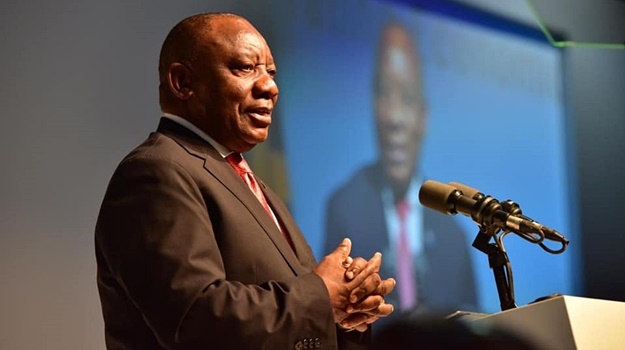
As long as sectarian needs are prioritised, moving forward to a fully inclusive and developmental country will be elusive, writes Khwezi Mabasa
The jobs and investment summit’s public discourse has reignited the debate on South Africa’s social compact.
Most commentators identify the lack of consensus among social partners (business, government, labour and civil society) as the main impediment to achieving inclusive economic development.
This is exemplified by the maximalist and acrimonious social partner discussions on important political economy issues in the past two decades.
President Cyril Ramaphosa has attempted to address this challenge by encouraging government, business and labour to form a social compact, which will ameliorate the nation’s major socioeconomic challenges.
His proposition is drawn from international experiences and research that highlight the centrality of social dialogue, compromise and consensus in attaining higher national development levels.
Countries such as Sweden, Ireland, Singapore and South Korea used this public policy formulation model to restructure their economies and improve human development.
However, Ramaphosa’s suggestion is not new.
Social partners in post-apartheid South Africa have participated in various forums and formulated several multistakeholder developmental pacts.
Some prominent examples include: The Presidential Jobs Summit of 1998, the Growth and Development Summit in 2003, 2011’s Social Partner Accords and the Social Cohesion Summit held in 2012.
Research indicates there has been minimal progress in attaining the key socioeconomic objectives outlined in these agreements.
This elucidates the necessity of rethinking South Africa’s social compact by introducing the following changes.
First, a thorough review of salient social dialogue forums such as the National Economic Development and Labour Council (Nedlac).
Reports from social partners, researchers and commentators indicate that Nedlac is not pursuing its mandate effectively.
They cite numerous challenges, such as weak negotiating capacity, inflexible mandates and subverting formal negotiation processes.
More important, society has raised concerns regarding Nedlac’s legitimacy and breadth of representativity.
Some constituencies’ interests are not adequately represented by the various social partners that engage in this forum.
The Mapungubwe Institute for Strategic Reflection (Mistra) 2014 social compacts report provides an alternative approach.
The document calls for a plural social compact institutional design, which includes Nedlac and other social dialogue forums.
This will address the challenges of representativeness and unproductive negotiating culture.
International experience highlights that successful social compacts develop in a pluralistic institutional framework.
It is important to legitimise what Thandika Mkandawire describes as a “shared developmental vision” among social partners.
The past 24 years have been characterised by sectarian ideological contestation between business, labour and government.
This approach impedes the process of formulating and implementing a common development vision.
Social partners adopt maximalist positions, which are based on short-term interests that overlook sustainable development pathways.
Another obstacle for creating a shared vision is the inability of leaders to explain social partner agreement outcomes.
This specifically applies to situations in which there are some concessions.
Representatives do not engage their members thoroughly on the nature of these compromises.
Mistra and Mkandawire’s findings suggests that these challenges require leadership that prioritises long-term national development goals over “the myopia and short-termism of the market”.
National economic development and strategic futuristic objectives must supersede immediate gains.
Leaders must be capacitated to transcend the short term and value transparency so their constituencies fully comprehend the details of agreements.
The third element in rethinking social compacts is related to structural change.
Previous pacts were based on specific areas of development such as employment, skills, building partnerships and procurement.
These are important aspects of the economic transformation discourse.
However, the impact is minimal when proposed interventions are not located in a broader macro-economic structural change context.
For example, the recent summits on employment and investment must be linked to current and future economic restructuring trends.
This will lead to social partners agreeing on employment and investment frameworks that address systemic structural weaknesses in South Africa’s economy.
The Mistra Indlulamithi scenarios identify prominent challenges that include the following: racialised wealth and income inequality, concentration of ownership, high socioeconomic costs for workers, uneven spatial development and deindustrialisation.
And last, monitoring and evaluation must be afforded more attention.
Successful social compacts are sustained by social cohesion and material gains.
All social partners must experience the tangible socioeconomic benefits of agreements.
This is crucial for legitimising social compact governance over zero-sum politics.
Effective monitoring and evaluation will not work if the state cannot discipline social partners.
Incentives and other public inducement mechanisms should be accompanied by a system that withdraws support if a social partner fails to meet certain obligations.
Furthermore, costs and benefits of social compacts should be evenly distributed to develop a sense of fairness in the process.
As Mkandawire said: “Regimes that simply gave away credit and repressed labour on behalf of business without demanding anything in return from business ultimately ended up managing predatory pacts.”
Mabasa is a researcher at the Mapungubwe Institute for Strategic Reflection




 Publications
Publications
 Partners
Partners








